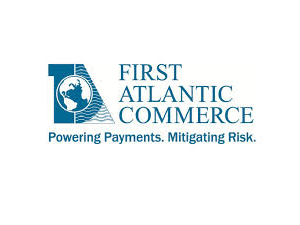Here’s What You Need to Take Your Business Online in the Caribbean
- Pauline Joseph

- Jul 8, 2020
- 3 min read
While e-commerce isn’t exactly a new craze, it’s gained significant popularity since the COVID-19 stay at home measures, and it’s a trend that’s here to stay as global consumers shift to the Digital Age. It’s no wonder that small businesses in the Caribbean would want to get in on some of the online shopping action.

AC Marketing sat down virtually with Karen Wharton, Product Manager for Merchant Services at RBC and Christopher Burns, CEO of the payment gateway company First Atlantic Commerce to find out more about the steps to facilitating online payments for your business.
Here’s what you’ll need.
An RBC Bank Account

If you already have one, you’re halfway there!
If you don’t, you’ll need two forms of picture ID and a Proof of Address in the form of a utility bill to apply for one.
Your Business Registration Information

You need to provide the bank with some form of proof that you have a legitimate business. In Trinidad and Tobago, you’ll also need a Credit Bureau Check.
Financial Statements

You need to provide the bank with a sample of your financials, or if you’re a start-up business, your predicted cash flows.
A Merchant Account

You can find information about this account on RBC’s website by searching your island and getting the relevant webpage.
You need a Merchant Account to do e-commerce because it gives you a unique Merchant ID that allows your business to facilitate online payments.
To get approval for a Merchant Account, you’ll need to provide the bank with a suitable business plan, along with your Merchant Account Application Form which you will get from the bank.
A Plan For Your Online Business

This plan should be comprehensive and show the bank that you thought through the process. You should include –
(i) Your expected online transactions.
(ii) Your pricing model – you should have the e-commerce transaction fees built into your pricing. RBC’s fee is at a maximum of 4%, so you can use 4% in your price calculation.
(iii) How you plan to sell online – either by a website or through social media (you should have a demo of what your website or social media page looks like).
(iv) How you plan to deliver goods and services to your client.
RBC has a checklist of Best Practices they can provide for you to ensure your online business is good to go. This includes having Terms and Conditions and a proper Refund Policy.
A Payment Gateway Company

You also need a payment gateway company like First Atlantic Commerce (FAC) to link the transactions from your online business website or social media page to your Merchant Account using your unique Merchant ID.
Christopher Burns recommends that you contact FAC in parallel to setting up your Merchant Account so they can help you with the Best Practices checklist and ensure you have what you need to go online.
Once you have these things, you’re all set to cater to the online shopping consumers in your country.

Karen Wharton and Christopher Burns also offered some advice to small business owners looking to get into e-commerce.
Karen's advice is,
"Just do it!"
In the past, many people felt they couldn’t have an online business without a website, but with social media it’s now easier than ever to take your business online, or have it exclusively online - skipping the brick and mortar phase all together.
RBC and FAC allow you to accept payments online via Facebook, Whatsapp and Instagram, so you can cater directly to your clients on your social media business pages.
Christopher's advice is,
"Don’t be scared by the process."
The things required for opening an e-commerce Merchant Account are things that are useful for your thought process as you build your online business anyway. So it’s beneficial for you to undergo the process.
Think about the e-commerce transaction costs as an investment in your business. It actually works out more cost effective to have a business entirely online than through a brick and mortar store, and online shopping means your store is open and accepting payments 24/7, so you make money even while you’re asleep.
Special thanks to Karen Wharton, Product Manager for Merchant Services at RBC, and Christopher Burns, CEO of FAC, for giving their time and insights on the process.
Hopefully, this article gives you a better understanding of what you need for your business to be able to accept online payments and all the best to any small business owners who are about to start the online journey!
Would you like insight into content, data, and advertising delivered to your inbox? Subscribe Now to ACM Weekly




Comments